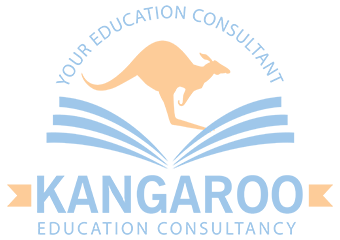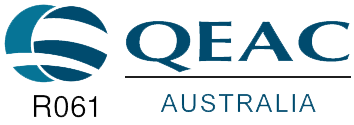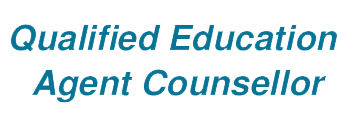- Nursing
- Accounting
- Cookery
- Engineering
- Early Childhood
- Building and Construction
- Carpentry
- Automotive
Nursing
Nursing
Nursing is very secure and popular profession in Australia. The demand for skilled registered nurses is constantly on the rise, the supply simply fails to meet the rising levels of demand.
Nursing has been recognized as a noble profession, which is focussed on health care of the community and individuals. The nurses generally depend on medical expertise, scientific approach and expertise achieved through extensive training to carve a niche for themselves. They are focussed on prevention of diseases and promoting health for quality life. The nurses can work in diverse range of settings with other medical staff, including, hospitals, medical centres, residential facilities, social development initiatives, research & development, general practices and more.
Entry Requirement
Diploma of Nursing:
Education :- Class 12th or equivalent
English Language :- IELTS- at least 7.0 score on each band, or PTE- 65
Bachelor of Nursing:
Education :- Diploma of Nursing or 12th class
English Language:- IELTS/PTE score of 7 on each band
Master of Nursing:
Education:- An Australian undergraduate degree (or equivalent, excluding an Australian Bachelor of Nursing) with at least a credit (60%) average. Applicants are assumed to have some grounding at a tertiary level in human physiology before starting the course.
English Language:- 7.0 overall score and 7.0 on each band (a few places accept scores between 6.5 and 7.0)
Career Outcome
There are a number of different pathways a degree in Nursing could open up, such as:
- Hospital Orderly
- Matron
- Medical Administrator
- Nurse Educator
- Nurse Researcher
Registered Nurse (under a specific sub-field like community health, aged care, mental health, or disability rehabilitation to name just a few)
For more information, please contact our team member at +61 406 314 160
Accounting
Accounting
As most Australian industries need general accountants, taxation accountants and management accountants; accountancy is widely considered as a high-demand course in Australia amongst international students. Jobs in accounting also tend to pay high salaries; which means that if you do decide to settle down in Australia—you will definitely get a chance to enjoy higher standards of living than the average person. Working as an external auditor, corporate treasurer, or even as the head of accounts for an organization could just be some of the roles that accountancy students can choose to pursue or look forward to reaching after they are done with their graduation. Accountancy courses are often accredited by the CPA.
International students are also eligible for credit in the selected academic course or program. The credit transfer allows the students to avoid taking up similar qualifications/subjects from previous courses undertaken, helping them in minimising the cost of course, focus more on other subjects, shorten the duration of the course and engage more in practical training. Moreover, the eligible students in Accounting & Finance are eligible to avail the CPA Associate membership, after clearing the foundation exams.
Entry Requirement
Diploma of Accounting:
Education: Class 12th or equivalent
English Language: IELTS 5.5 or equivalent
Bachelor of Accounting:
Education: Class 12th or Equivalent
English Language: IELTS 6.0 or equivalent
Master of Accounting:
Education: An Australian undergraduate degree (or equivalent)
English Language: IELTS 6.5 or equivalent
Career Outcome
Some of the career prospects for graduate of Accounting can include:
- Accountant (General)
- External Auditor
- Internal Auditor
- Accounting Officer
- Accounting Manager
- Budgetary Analyst
Cookery
Cookery
Australia is Known for a highly established tourism industry. The courses in cookery allow students to learn about food handling, food production, teamwork, budgeting, advanced knowledge in hospitality and related skills. In addition to quality education, the international students are drawn to Australia for competent training opportunities and job opportunities.
Below is the glimpse of the courses offered by educational institutes in Australia:
- Certificate III in Commercial Cookery
- Certificate IV in Commercial Cookery
- Certificate III in Patisserie
- Certificate IV in Patisserie
- Diploma of Hospitality
- Advanced Diploma of Hospitality
- Associate Degree of Hospitality Management
- Bachelor of Tourism and Hospitality Management
- Diploma of Leadership and Management (International Students)
Entry Requirement
Education: Class 12th or equivalent
English Language: IELTS 5.5 or equivalent
For more information, please contact our team member at +61 406 314 160
Engineering
Engineering
The engineering degrees from the Australian colleges are recognized internationally with high overseas job opportunities in US, UK, New Zealand, South Africa and Canada. The engineering education in Australia is also supported by cultural diversity, unique landscapes, rich biodiversity, laid back atmosphere and highest standard of living. With such strong factors for educational and mental well-being, there is no other place like Australia to pursue engineering courses.
For those of you that are interested in studying engineering, Australia is ideally a great place to do so. While you can find many different engineering options to attract your sensibility; electrical, mechanical and civil engineering are generally preferred over most other branches as there is a greater demand for experienced workers in these particular fields on a regular basis.
Entry Requirement
Diploma of Engineering:
Education: Class 12th or equivalent
English Language: IELTS 5.5 or equivalent
Bachelor of Engineering:
Education: Class 12th or equivalent
English Language: IELTS 6.0 or equivalent
Master of Engineering:
Education: An Australian undergraduate degree (or equivalent)
English Language: IELTS 6.5 or equivalent
Career Outcome
- Mechanical Engineer
- Civil Engineer
- Urban Development Engineer
- Utilities Engineer
- Aeronautical Engineer
- Agricultural Engineer
- Geotechnical Engineer
For more information, please contact our team member at +61 406 314 160
Early Childhood
Early Childhood
With an exponential increase in two-income households, the necessity for day-care workers, babysitters, nannies, as well as schoolteachers has been constantly on the rise. Completing a course in early childhood education and teaching could easily prepare you to work in any of the positions above; or go into research for different organizations that work for research towards childhood development.
Students who choose to have a career in education could go one of three possible routes, which are:
- Early Childhood Education
- Primary Education
- Secondary Education
Entry Requirement
Below are some degrees in this stream, and the academic and English Language requirements for them:
Certificate III + Diploma of Early Childhood Education:
Class 12th (and successful completion of Language, Literacy and Numeracy Indicator Test)
IELTS/PTE 5.5 overall with no band score less than 5.0
Career opportunities
- Early childhood educator
- Out-of-school-hours educator or coordinator
- Family day-care operator
- Educational leader
- Early childhood centre director or coordinator
Bachelor of Education or Early Childhood:
Diploma or 12th class with Mathematics (CASPER Test)
English: IELTS 7.0 on each band; with a few universities accepting 6.5 (6.0)
Career opportunities include the following:
Teaching in Early Childhood Programs and Primary School Settings (Preparatory to Year 6)
Master of Teaching in Early Childhood
Applicants undertaking the Master of Teaching must hold a bachelor’s degree or approved equivalent in a relevant discipline (CASPER Test)
English: IELTS 7.5 (Speaking, listening 8 and Reading, writing 7); with a few universities accepting 7.0 on each band
Career opportunities – Master of Teaching prepares you for a range of teaching careers in:
- Primary schools
- Early childhood education
- Special education
- Community
- Non-traditional learning environments, including advisory boards, private organizations and local and state government.
Bachelors in Primary Education:
Class 12th (and successful completion of Language, Literacy and Numeracy Indicator Test)
English IELTS 7.0 on each band; with a few universities accepting 6.5 (6.0)
Career opportunities include the following:
Teaching in Primary Education Programs and Primary School Settings (Years 1 through to 6)
Even though you can technically get a job working as a primary school teacher after you finish your undergraduate program, many students go a step further and get a Master of Teaching in Primary Education to specialize their expertise in the stream.
Master of Teaching (Primary Education):
A Bachelor of Education or any equivalent degree
IELTS/PTE 7.0 overall with no band score less than 7.0, and speaking and listening scores of 7.5 each
Many of you might wish to become teachers in middle schools or secondary schools. In that case, you can study in a Secondary Education course in an Australian university of your choice. Here are some of the degrees for this course:
Bachelor of Secondary Education:
Diploma or 12th class having relevant subjects in senior high school exams
English IELTS 7.0 on each band; with a few universities accepting 6.5 on each band
Master of Secondary Education:
An undergraduate/ bachelor’s degree from an approved institution/ university
English: IELTS 7.5 (Speaking, listening 8 and Reading, writing 7); with a few universities accepting 7.0 on each band
Career opportunities include the following:
Teaching in Secondary Education Programs and Secondary or High School Settings (Years 7 through to 12)
For more information, please contact our team member at +61 406 314 160
Building and Construction
Building and Construction
If you are thinking of becoming the expert of a trade in Australia; building and construction could prove to be a fine course for you. You will get a chance to study and try out various building techniques. For people who enjoy building things from scratch, this can be quite a rewarding field of study indeed. Construction is a large industry, so it has more employment opportunities available on a regular basis. You can start your career in construction and building with a simple apprenticeship or traineeship.
Here are some of the degrees available in Building and Construction:
- Certificate III in Construction and Building
- Certificate IV in Construction and Building
- Diploma of Building and Construction (Building or Management)
- Bachelor of Building (Construction Management)
- Graduate Certificate of Construction Management
- Graduate Diploma of Construction Management
- Master of Construction Management
For more information, please contact our team member at +61 406 314 160
Carpentry
Carpentry
The construction industry strongly affirms that training and assessment leading to recognition of skills must be undertaken in a real or very closely simulated workplace environment and this qualification requires all units of competency to be delivered in this context.
This Certificate III in Carpentry is a nationally recognised qualification that provides a trade outcome in carpentry, covering work in residential and commercial applications. The qualification has core unit of competency requirements that cover common skills for the construction industry, as well as a specialist field of work.
Entry requirements
- Applicants must be minimum 18 years of age at the time of applying for admission.
- Satisfactory completion of Australian Year 12 or equivalent level of study (in Australian or in applicant’s home country)
- English Proficiency a. Minimum English level of IELTS 5.5 or equivalent; or b. IELTS band score of 5.0 and satisfactory completion of an Upper c. Intermediate ELICOS or EAL/EAP program of 10 weeks or up to 20 weeks;
For more information, please contact our team member at +61 406 314 160
Automotive
Automotive
The automotive and automobile industry is one of the oldest Australian industries to still exist that continues to grow in leaps and bounds. The advanced, state-of-the-art technology used within the industry is changing and improving on a regular basis, evolving as per consumer demands.
The automotive courses in Australia offer international students a chance to explore their passion for motor vehicles. These courses blend practical application with theoretical and technical expertise into machines and vehicles. The automotive courses offer training in the following,
- Automotive electrical
- Mechanical systems
- Fuel and ignition systems
- Automobile repair & maintenance
- Diagnosis of automobiles using latest technology
- Here is the breakdown of academic requirements and degrees in Automotive Engineering:
- Certificate III in Automotive Mechanical Technology (Light Vehicle)
- Certificate IV in Automotive Electrical Engineering
- Diploma of Automotive Technology
- Bachelor of Engineering (Automotive Engineering) (Honours)
- Master of Engineering (International Automotive Engineering)
Career Outcome
Some of the career prospects for graduates of Automotive Engineering can include:
- Automotive Electric Fitter
- Motor Mechanic
- Motor Vehicle Parts and Accessories Fitter
For more information, please contact our team member at +61 406 314 160





